Abstract
We have investigated anti-acetylcholine receptor (AChR) characteristics in three forms of generalized myasthenia gravis, which are distinguishable by their thymic pathology, age of onset, sex incidence and HLA antigen associations, and in restricted ocular myasthenia. Light chain, IgG subclass, avidity for denervated human AChR and reaction with various human and mammalian AChR preparations were examined in 9-12 patients from each group. Characteristics varied between individuals in each group but no significant differences were found in mean values between the three groups with generalized myasthenia. When antibody characteristics in ocular myasthenia were compared with those in generalized disease, however, differences were found particularly in relative reactivity with denervated, normal and ocular human AChR. The nature of the humoral response in ocular myasthenia thus differs from that in generalized myasthenia. The similarity in the humoral response between the three groups of generalized myasthenia suggests, on the other hand, that the distinguishing clinical features may reflect differing susceptibilities to diverse precipitating mechanisms.
Full text
PDF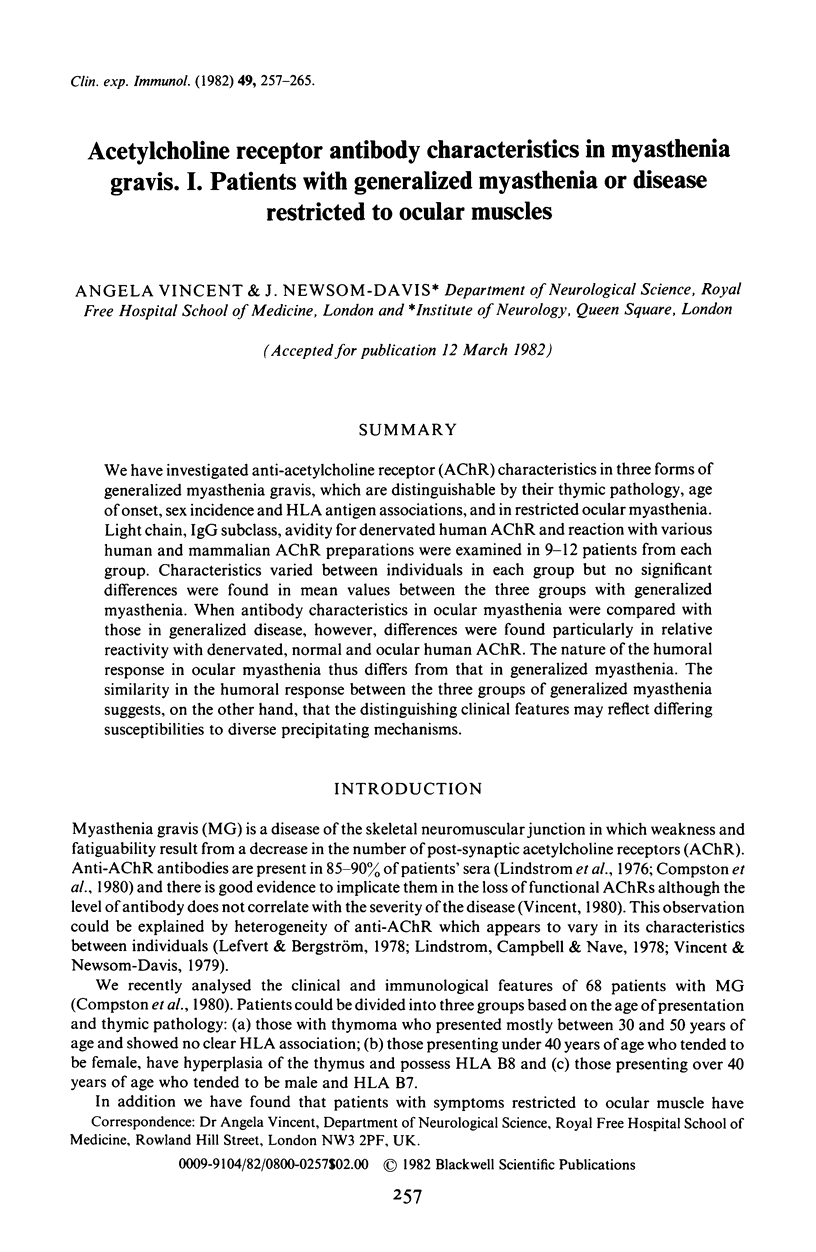
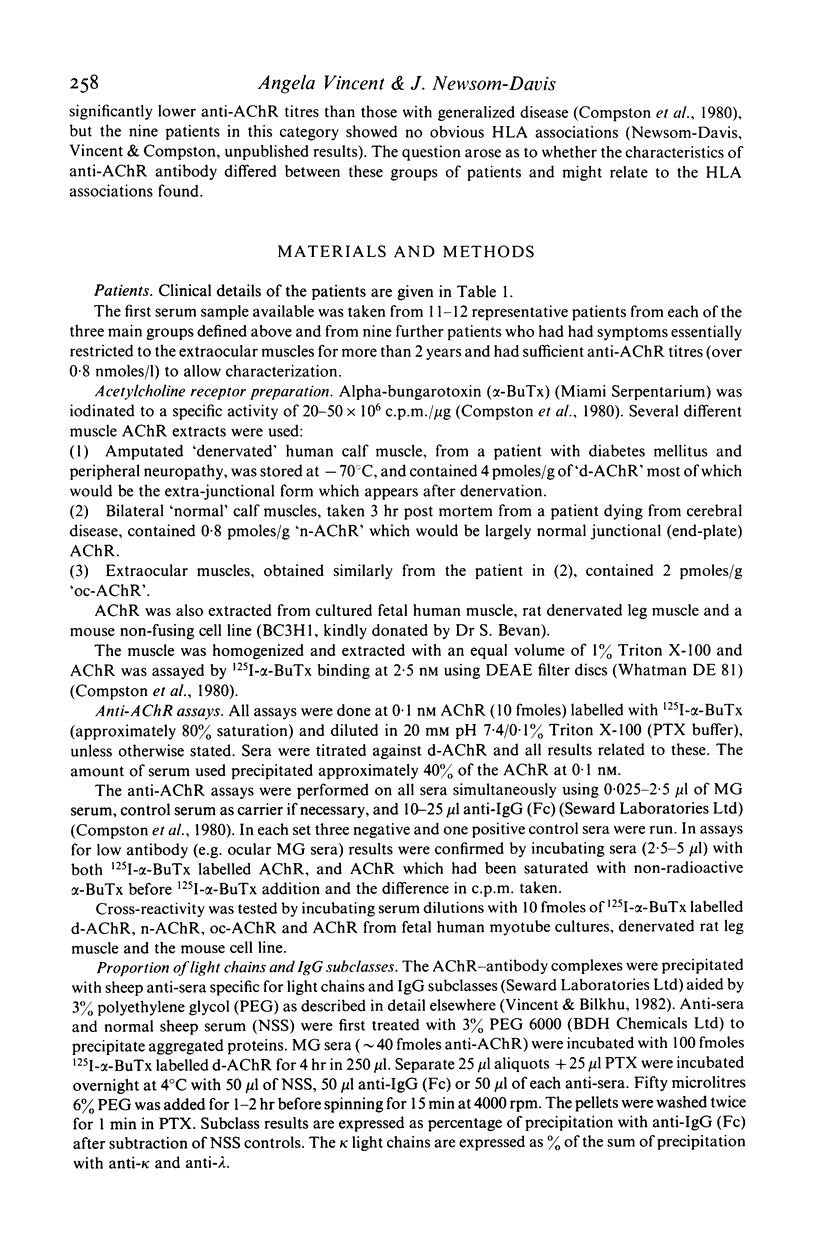
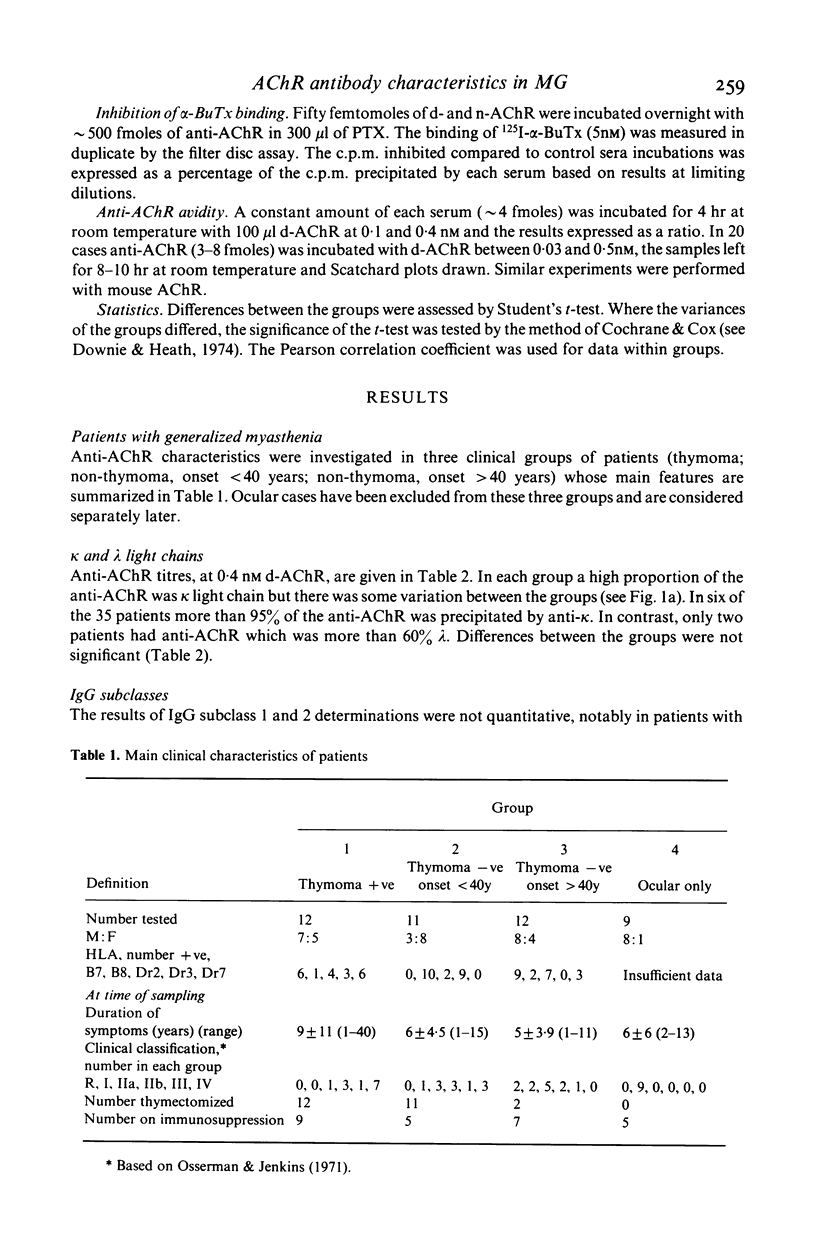
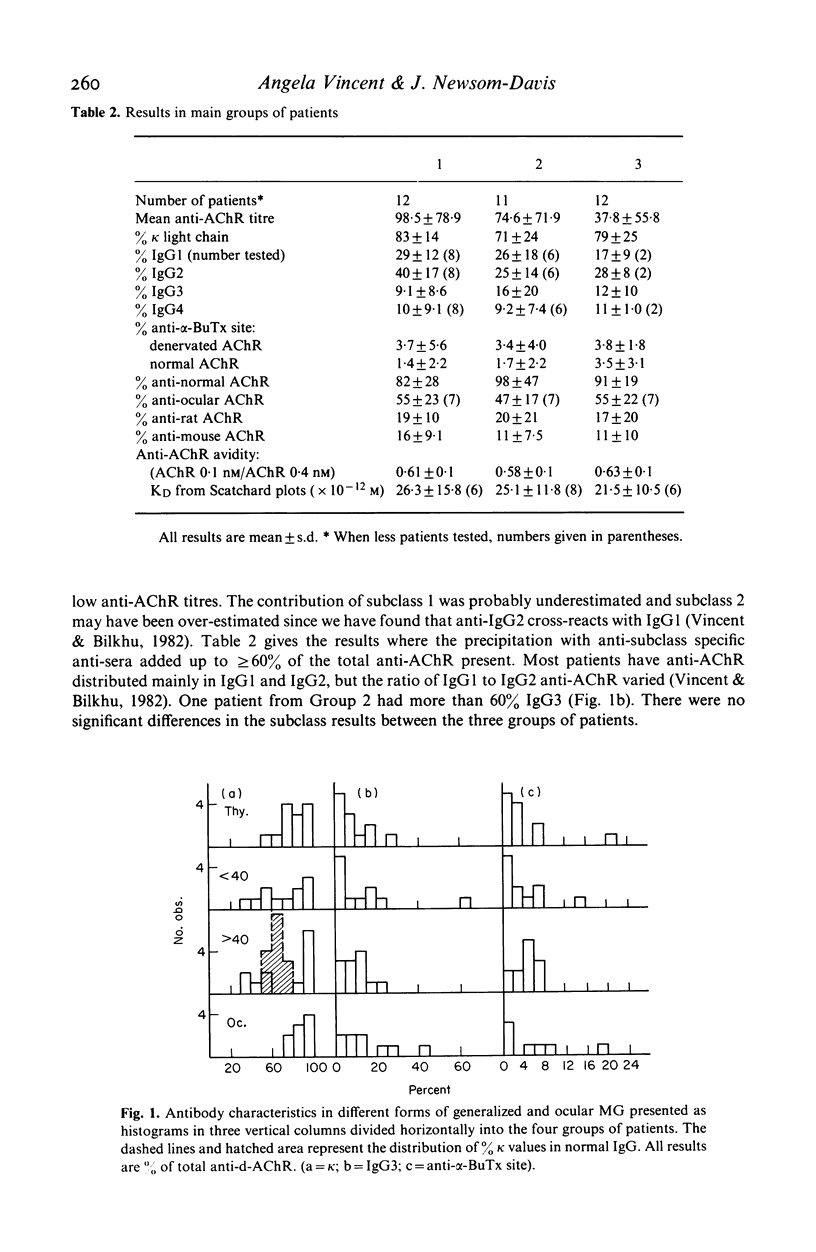
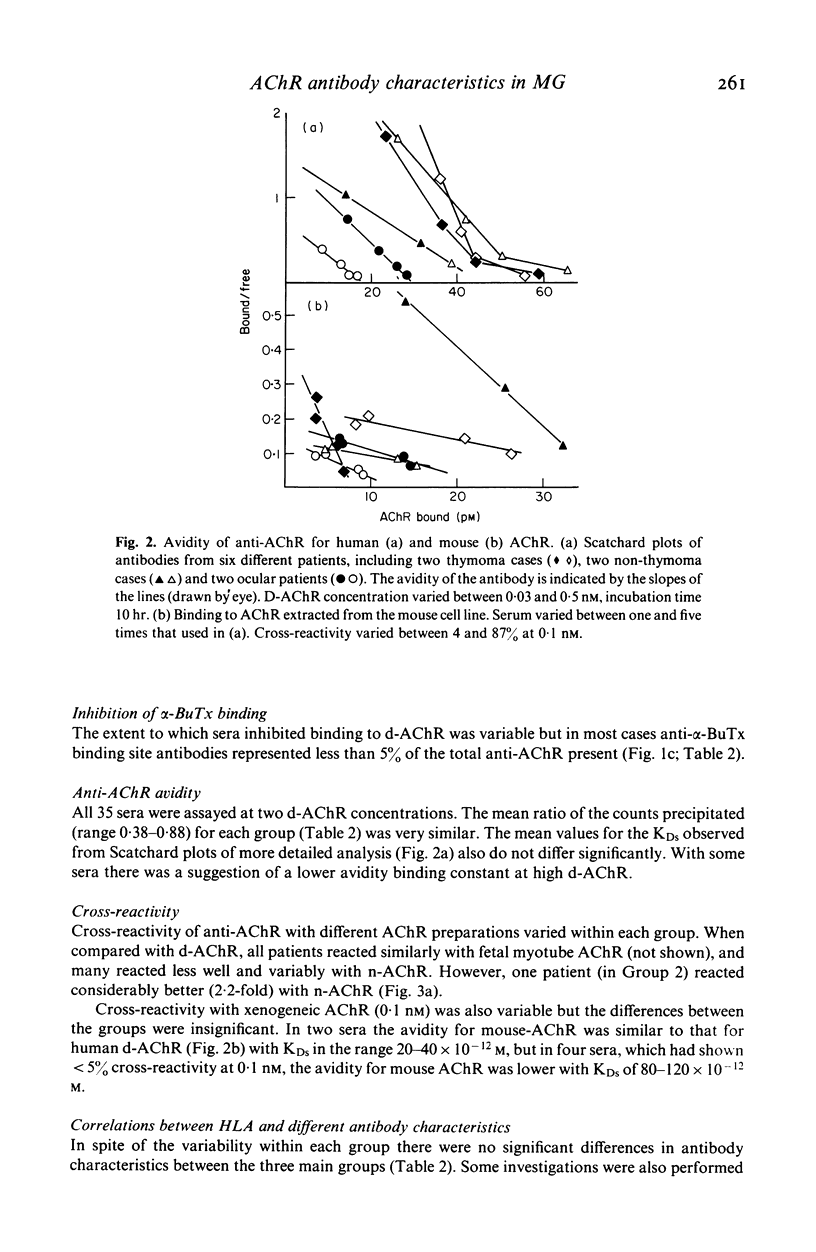
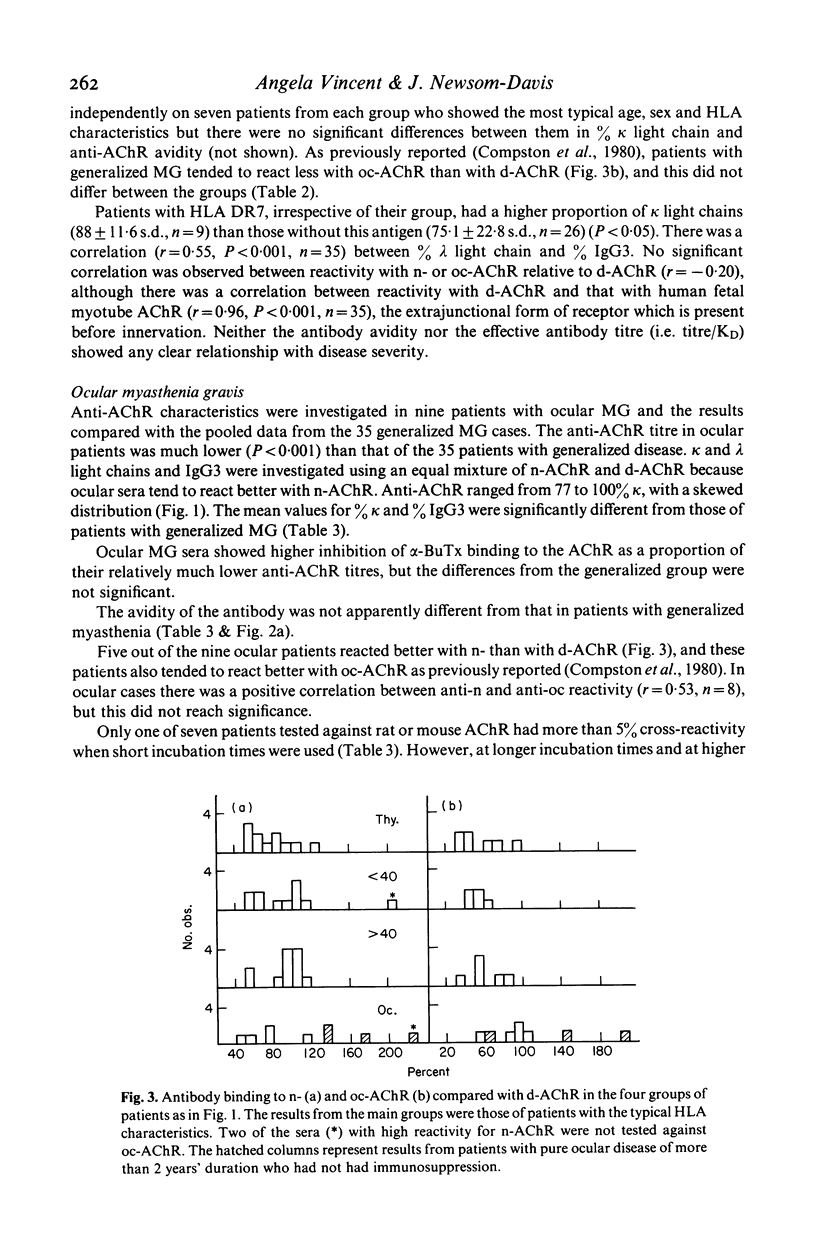
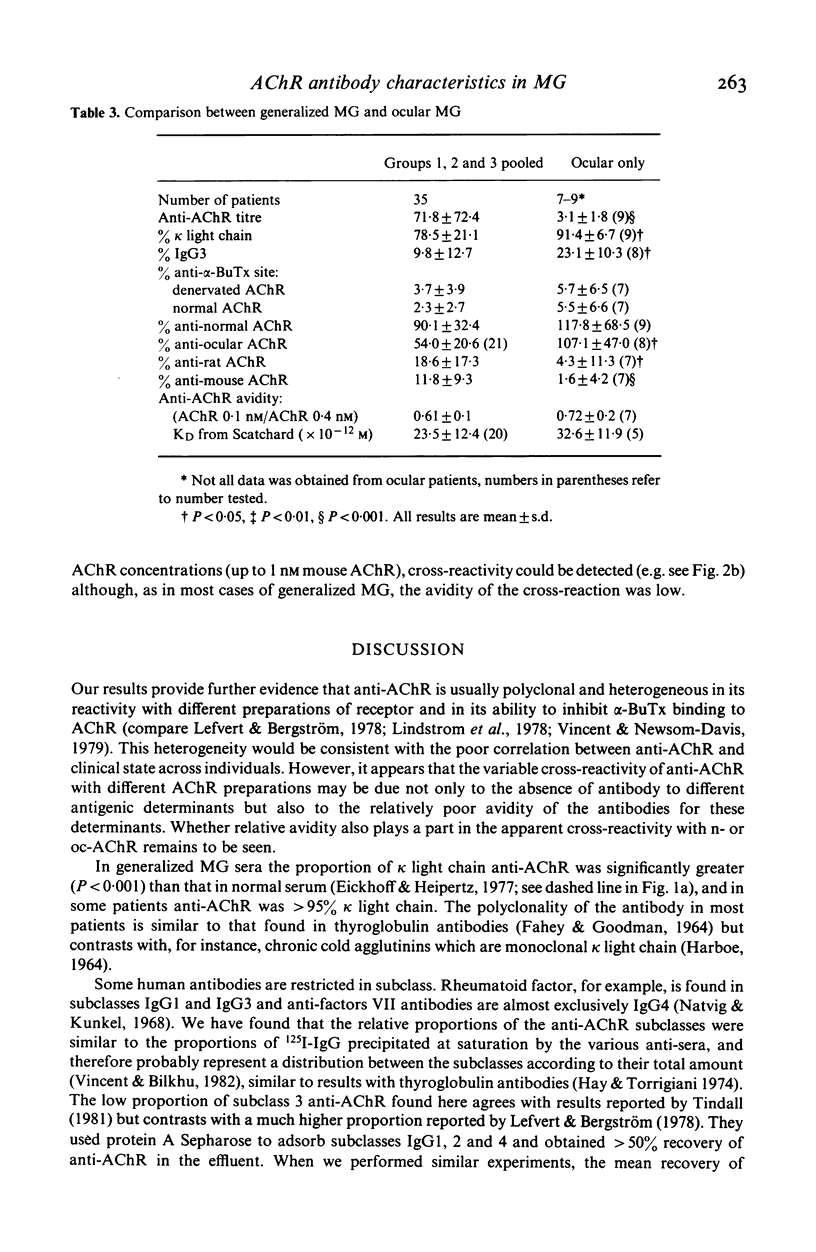
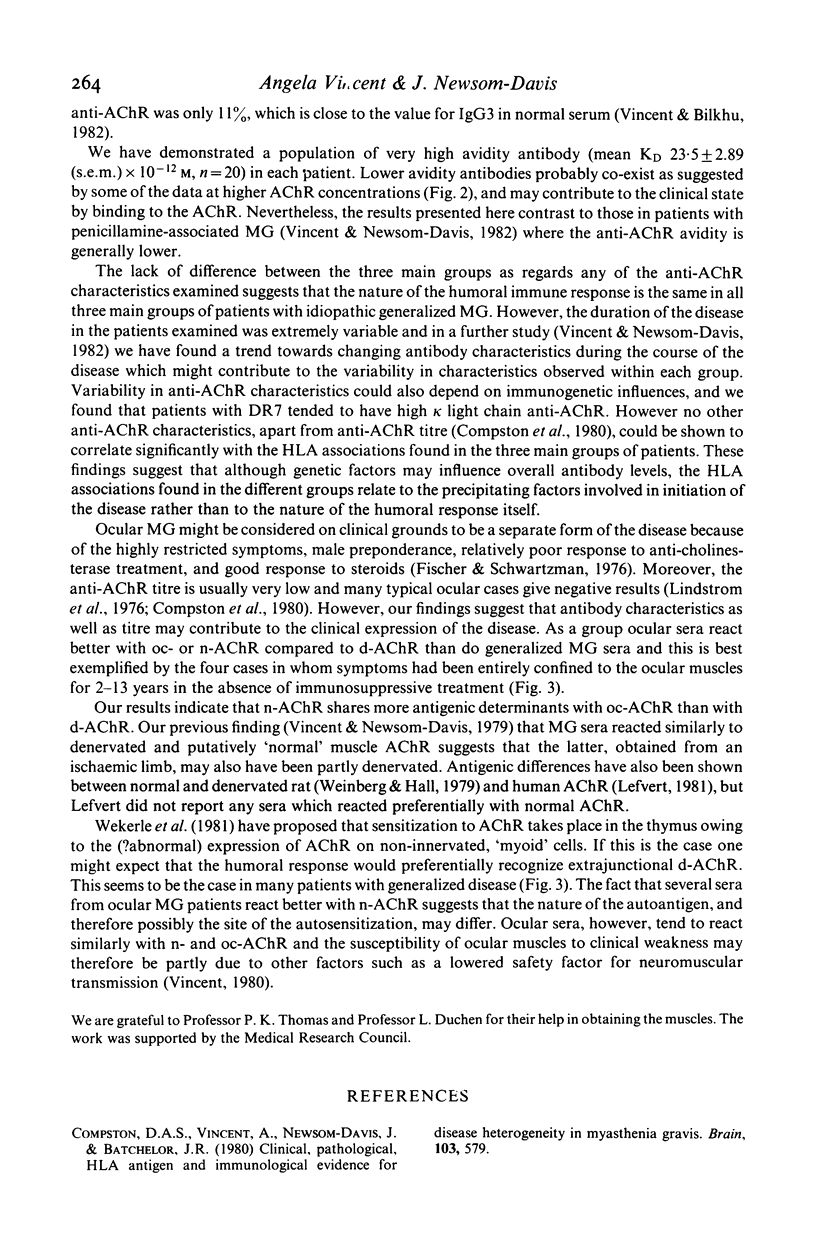
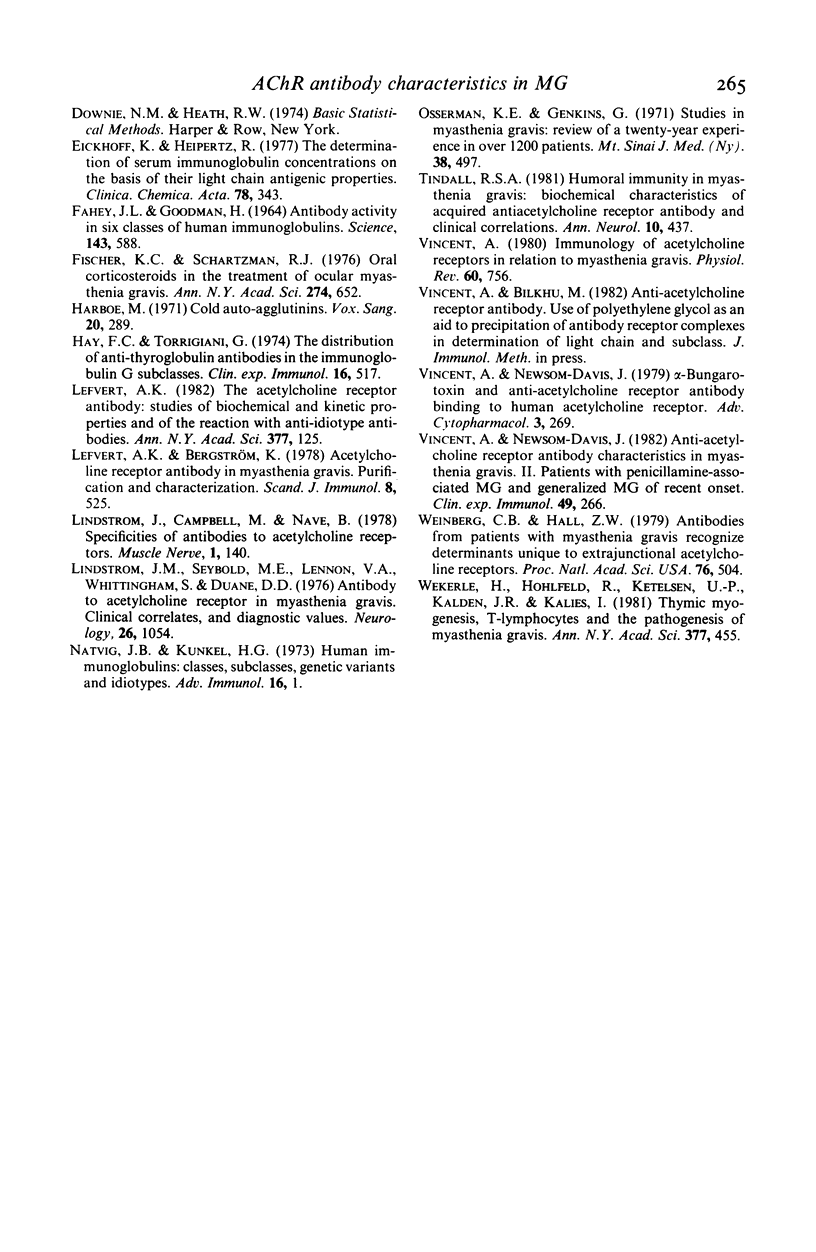
Selected References
These references are in PubMed. This may not be the complete list of references from this article.
- Compston D. A., Vincent A., Newsom-Davis J., Batchelor J. R. Clinical, pathological, HLA antigen and immunological evidence for disease heterogeneity in myasthenia gravis. Brain. 1980 Sep;103(3):579–601. doi: 10.1093/brain/103.3.579. [DOI] [PubMed] [Google Scholar]
- Eickhoff K., Heipertz R. The determination of serum immunoglobulin concentrations on the basis of their light-chain antigenic properties. Clin Chim Acta. 1977 Jul 15;78(2):343–349. doi: 10.1016/0009-8981(77)90326-6. [DOI] [PubMed] [Google Scholar]
- FAHEY J. L., GOODMAN H. ANTIBODY ACTIVITY IN SIX CLASSES OF HUMAN IMMUNOGLOBULINS. Science. 1964 Feb 7;143(3606):588–590. doi: 10.1126/science.143.3606.588. [DOI] [PubMed] [Google Scholar]
- Fischer K. C., Schwartzman R. J. Oral corticosteroids in the treatment of ocular myasthenia gravis. Ann N Y Acad Sci. 1976;274:652–658. doi: 10.1111/j.1749-6632.1976.tb47723.x. [DOI] [PubMed] [Google Scholar]
- Harboe M. Cold auto-agglutinins. Vox Sang. 1971 Apr;20(4):289–305. doi: 10.1111/j.1423-0410.1971.tb00447.x. [DOI] [PubMed] [Google Scholar]
- Lefvert A. K., Bergström K. Acetylcholine receptor antibody in myasthenia gravis: purification and characterization. Scand J Immunol. 1978;8(6):525–533. doi: 10.1111/j.1365-3083.1978.tb00552.x. [DOI] [PubMed] [Google Scholar]
- Lefvert A. K. The human acetylcholine receptor antibody: studies of kinetic and biochemical properties and the reaction with anti-idiotypic antibodies. Ann N Y Acad Sci. 1981;377:125–142. doi: 10.1111/j.1749-6632.1981.tb33728.x. [DOI] [PubMed] [Google Scholar]
- Lindstrom J. M., Seybold M. E., Lennon V. A., Whittingham S., Duane D. D. Antibody to acetylcholine receptor in myasthenia gravis. Prevalence, clinical correlates, and diagnostic value. Neurology. 1976 Nov;26(11):1054–1059. doi: 10.1212/wnl.26.11.1054. [DOI] [PubMed] [Google Scholar]
- Lindstrom J., Campbell M., Nave B. Specificities of antibodies to acetylcholine receptors. Muscle Nerve. 1978 Mar-Apr;1(2):140–145. doi: 10.1002/mus.880010206. [DOI] [PubMed] [Google Scholar]
- Natvig J. B., Kunkel H. G. Human immunoglobulins: classes, subclasses, genetic variants, and idiotypes. Adv Immunol. 1973;16:1–59. doi: 10.1016/s0065-2776(08)60295-3. [DOI] [PubMed] [Google Scholar]
- Osserman K. E., Genkins G. Studies in myasthenia gravis: review of a twenty-year experience in over 1200 patients. Mt Sinai J Med. 1971 Nov-Dec;38(6):497–537. [PubMed] [Google Scholar]
- Tindall R. S. Humoral immunity in myasthenia gravis: biochemical characterization of acquired antireceptor antibodies and clinical correlations. Ann Neurol. 1981 Nov;10(5):437–447. doi: 10.1002/ana.410100506. [DOI] [PubMed] [Google Scholar]
- Vincent A. Immunology of acetylcholine receptors in relation to myasthenia gravis. Physiol Rev. 1980 Jul;60(3):756–824. doi: 10.1152/physrev.1980.60.3.756. [DOI] [PubMed] [Google Scholar]
- Vincent A., Newsom-Davis J. Acetylcholine receptor antibody characteristics in myasthenia gravis. II. Patients with penicillamine-induced myasthenia or idiopathic myasthenia of recent onset. Clin Exp Immunol. 1982 Aug;49(2):266–272. [PMC free article] [PubMed] [Google Scholar]
- Vincent A., Newsom-Davis J. alpha-Bungarotoxin and anti-acetylcholine receptor antibody binding to the human acetylcholine receptor. Adv Cytopharmacol. 1979;3:269–278. [PubMed] [Google Scholar]
- Weinberg C. B., Hall Z. W. Antibodies from patients with myasthenia gravis recognize determinants unique to extrajunctional acetylcholine receptors. Proc Natl Acad Sci U S A. 1979 Jan;76(1):504–508. doi: 10.1073/pnas.76.1.504. [DOI] [PMC free article] [PubMed] [Google Scholar]
- Wekerle H., Hohlfeld R., Ketelsen U. P., Kalden J. R., Kalies I. Thymic myogenesis, T-lymphocytes and the pathogenesis of myasthenia gravis. Ann N Y Acad Sci. 1981;377:455–476. doi: 10.1111/j.1749-6632.1981.tb33753.x. [DOI] [PubMed] [Google Scholar]


